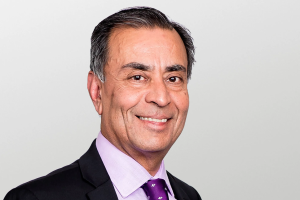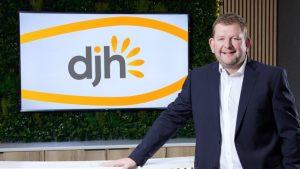Ratcliffe calls in restructuring consultants Interpath to slash costs at Old Trafford

Manchester United’s new co-owner Sir Jim Ratcliffe has appointed corporate restructuring consultants from Interpath to find cost savings and potentially slash staff numbers.
United announced record second quarter income on Tuesday, which has boosted Manchester United’s six month financial figures for the period to December 31, 2023, which showed interim revenues of £382.9m, a 23.1% improvement on 2022’s £311m figure.
But Ratcliffe, who is known for pursuing a ruthless approach to business efficiency, has tasked Interpath with examining “all areas of United’s business” in order to drive efficiency and find cost savings.
Interpath has been deployed by chemicals giant Ineos in other business sectors and is understood to enjoy a strong relationship with Ratcliffe and his executive team from Ineos who have taken operational control at Old Trafford as part of his £1.03 billion investment in a 27.7 per cent stake in Manchester United.
The chemicals tycoon has also been on a local charm offensive, meeting local politicians, fan groups and regional stakeholders, and signalling his ambition to build a new stadium – a Wembley of the North.
The Telegraph has reported that Interpath’s review, which began earlier this month (March 2024) has gathered urgency due to concerns that United will fail to qualify for the lucrative Champions League and need to operate within the stringent limits of the Premier League’s profit and sustainability rules (PSR) and Uefa’s financial sustainability regulations.
Interpath are understood to be adopting a two-stage strategy by first analysing all business and operational costs, such as how much is spent on travel, utilities and supplier arrangements.
A second stage will look at employee costs and is widely expected to lead to substantial job cuts to the 1,112 staff employed at the club, the largest headcount amongst Premier League clubs.
“Cost savings will help the club comply with FFP/PSR rules because there are limits on the losses clubs are allowed to make, and the more profitable a club is, the greater the headroom for investment in players,” a United insider is reported to have said to the Telegraph. “So reducing costs has a direct link to how much we can invest in the squad.”
United have spent £555 million over the previous three summer transfer windows with a poor return by their high standards.
Yet earlier in the week the noises coming out of Old Trafford were upbeat with Cliff Baty, Chief Financial Officer, saying: “We delivered strong revenues during the first half of the fiscal year and have reiterated our guidance for record revenues for the full fiscal year.
“This is an exciting time at Manchester United following the completion of Sir Jim Ratcliffe’s investment, and we are all focused on working together with our new co-owners to drive the club forward and deliver success on the pitch.”
For fiscal year 2024, the club reiterates its previous revenue guidance of £635m to £665m and its previous adjusted EBITDA guidance of £125m to £150m.
The strong second quarter revenues were driven primarily by UEFA Champions League participation and continued strong matchday momentum, with record attendance for all teams.
Commercial revenue for the quarter was £71.8 million, a decrease of £6.9m, or 8.8%, over the prior year quarter.
Sponsorship revenue was £39.2m, a decrease of £11.2m, or 22.2%, over the prior year quarter, primarily due to a one off sponsorship credit in the prior year quarter.
Retail, Merchandising, Apparel & Product Licensing revenue was £32.6m, an increase of £4.3m, or 15.2%, over the prior year quarter, due to the extension of the contract with kit supplier adidas and strong megastore performance.
Broadcasting revenue for the quarter was £106.4m, an increase of £47.6m, or 81%, due to UEFA Champions League participation, compared with the UEFA Europa League in the prior year.
Matchday revenue for the quarter was £47.6m, an increase of £17.7m, or 59.2%, helped by playing two more home games in the current year quarter compared with the prior year quarter, and Champions League income.
Employee benefit expenses for the quarter, primarily players’ wages, were £95.1m, an increase of £17.8m, or 23.0%, again, due to participation in the Champions League.
The club incurred an exceptional cost of £9.6m, made up of costs incurred in relation to the group’s strategic review and agreed sale of 25% of Class B shares and up to 25% of Class A shares to Sir Jim Ratcliffe.
Further exceptional items have been recognised in the third quarter of fiscal year 2024, after Premier League and Football Association approval of the deal was received.
Overall cash and cash equivalents, including the effects of exchange rate movements, decreased by £18m in the quarter, compared with an increase of £6.7m in the prior year quarter.
Net cash inflow from financing activities for the quarter was £59.7m, compared with £99.4m in the prior year quarter. This is due to a £60m drawdown on the revolving credit facilities in the current quarter compared with a £100m drawdown in the prior year quarter.







